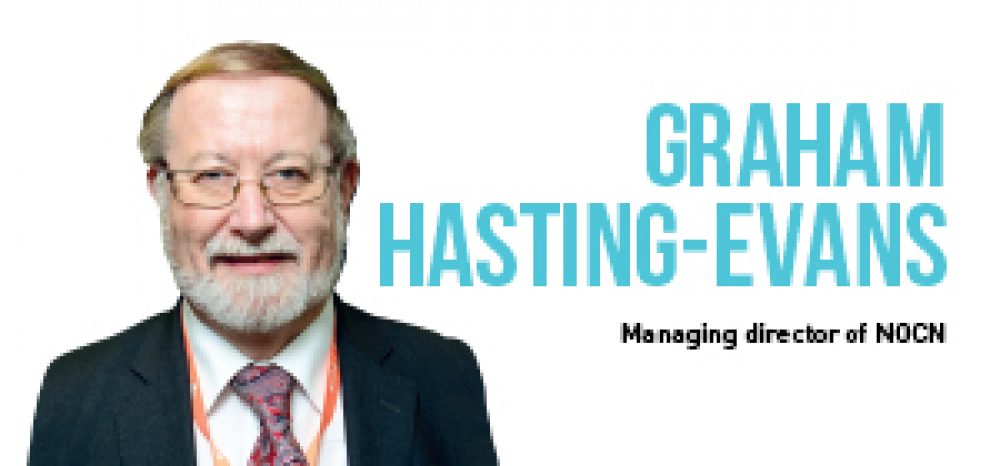There was much to welcome in the Sainsbury Review proposals for technical education, according to Graham Hasting-Evans, but he thinks the idea of licensing a single awarding organisation for each of the 15 new “high quality” vocational routes is a poor one. Here’s why:
The fact the UK does not perform well in the world skills league was a challenge and well known, long before Brexit brought it back into focus.
We have a problem and we must fix it.
Our system of education and skills development must be able to deliver a workforce at the cutting edge, productive and able to compete on the world stage — which means our present, unwieldy system of thousands of qualifications and 158 awarding organisations is just not sustainable.
Ofqual’s figure of 21,924 qualifications is often quoted as an example of the problem.
But this is a misunderstanding of the statistics, because although the Ofqual figure is accurate — it’s not actually the number of qualifications, it’s the number it regulates (so extensively overstates the actual number of qualifications).
As an example take a single functional skills qualification at level two.
It’s delivered by 23 awarding organisations — so this one qualification becomes 23 in Ofqual’s statistics, as it regulates the 23 awarding organisations’ single functional skill qualification.
Many of us recognise the present arrangements are bewildering and overly complex.
There is a lack of coherency and while it’s true there are some excellent courses with great qualifications, it’s not universal. Change is required.
So the proposals for 15 focused routes in technical education are to be applauded, as are the ideas for two-year courses, links to apprenticeships and university courses — and we need to sit this within a rational and easy to understand landscape for both professional and technical education and skills development.
But I think next year, as the Institute for Apprenticeships starts the detailed work on the content for the 15 routes, people will realise the devil is in the detail.
It’s a very similar model to the rail franchising system we have in the UK and it’s a very high-risk way of gaining a delivery organisation
Various, optional, pathways will be needed if the 15 routes are going to win acceptance from a wide range of employers, with the absolute requirement for flexibility and choice.
One of the other proposals is to create 15 ‘monopolies’, by licensing a single awarding organisation for each of the 15 routes.
It’s a very similar model to the rail franchising system we have in the UK and it’s a very high-risk way of gaining a delivery organisation (just ask commuters travelling into London what it’s like when this high-risk approach goes wrong).
The risk is if the single awarding organisation does not perform or, in the worst circumstances, fails.
If this happens, it means an enormous part of the economy is affected, possibly for a generation — it’s just too big a risk to take.
So is there an alternative which cuts the risk but still provides the step change needed?
Yes! We should let contracts through a procurement framework, creating a small number of awarding organisations, perhaps three to five per route.
This would give the necessary flexibility when we get into the detail and, as importantly, a ‘plan B’ and maybe even a ‘plan C’ if things go wrong.
That would be far less of a gamble with our country’s future.
The government’s publication of the Post-16 Skills Plan has accepted the independent panel’s recommendations with the licence procurement planned for October 2018 — which means there’s still time to rethink the procurement strategy for commissioning these licences.








I agree we need plural access but more portability between credits and qualifications.
The customer needs to influence and drive the delivery chain and the customer will also need much better IAG and LMI